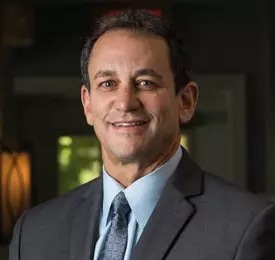Article Overview
The DSO Interview: A Make or Break Moment
When a DSO or a Private Equity firm is deciding whether to invest in your practice, they aren’t just considering its annual revenue or its location.
The harsh reality is your practice is probably not unique. You may have unique characteristics, but at the end of the day your practice is a profit center to third party buyers. There are thousands of other practices who produce similar numbers to you.
During the interviewing stage with a DSO, one of their primary concerns is whether or not they want to be in business with you for the next 5 years.
YOU are a major selling point for your practice—which means your personality is the competitive edge that can make or break a deal.
If you want to leave the right impression with DSO decision-makers so that you get the best, most lucrative offers coming your way, it’s important to prep yourself to be on your A-game.

Why Personality Matters to DSOs
“I think personality is 70% of a transaction,” says Britt Dellagatta, Vice President of Transitions at Freedom Dental Partners. A dentist with the right personality will be viewed much more favorably than a dentist who is deemed unpleasant.
According to Dellagatta, “Being a good fit in terms of personality will often lead to an allowance for minor financial blemishes in your practice. Conversely, practices that look incredible on paper with revenue well past the $5M mark will struggle to find a buyer if the dentist owners are considered unpleasant or difficult to work with.”
Dentistry is a field that has a strong human component. The best dentists aren’t just highly skilled at clinical procedures. They have impeccable chairside manner, the ability to foster camaraderie among their team, and a desire to invest in the well being of those who keep their practice growing.
Any investor in your practice is going to rely on those traits to ensure a smooth and successful transition. If you fail to demonstrate the value you provide as a respected and personable leader in your practice, investors will see the prospect of working with you as a high risk that is best avoided.

4 Mindset Tips for Making the Right Impression Before and After the DSO Interview
Getting to the interview stage with a DSO is an exciting and potentially nerve-wracking milestone. Nevertheless, it’s more important than ever to remain calm and collected during this process. Here are 4 mindset tips to help you make the right impression during each phase of the interview process.
Be clear about your ideal transition timeline
As tempting as it may be to say what you think a DSO wants to hear when asked about your timeline for exiting clinical practice, you’re not doing anyone any favors if you do. Be honest about how many days a week you’re willing to work and how many more years you’d like to continue working there are no unpleasant surprises in the future. You will be expected to work according to the schedule outlined in your contract, so think carefully about what you really want and express it clearly when asked.
Ask for the support you need
One of the greatest benefits of selling to a DSO is you can outsource the administrative tasks you’ve shouldered so long as a practice owner. But the support you receive will depend on the DSO you sell to, so it’s important to spell out what you want. You may not be able to get everything you ask for, but you have a great chance of achieving it when you speak up.
Understand front end value isn’t everything
You deserve to get the most out of selling the practice you’ve spent a lifetime building. Fortunately, hungry investors are willing and able to reward you handsomely in exchange for your business. But how do you know which offers are most lucrative? It’s not as simple as comparing how much cash you’ll receive up front. Different DSOs have different offer structures, and some of the most financially rewarding deals may result in less cash initially.
The best DSO offers are the ones that give you a healthy amount of Holding Company (Holdco) stock as well as cash. As the DSO adds new practices and improves its existing practices, the valuation of the DSO grows – and the value of your Holdco shares follows suit.
Being compensated for the sale of your practice with Holdco stock means you would make money on an ongoing basis from dividends and eventual recapitalization events in addition to the cash you were given in the beginning. That means you could earn significantly more than you would on an offer that gave you shares of Holdco and less cash in the beginning than on an offer that primarily gave you cash and little or no stock.
Be flexible with meeting times
It can be a challenge to juggle all the obligations on your busy schedule, but it’s critical that you make the time to meet with interested DSO investors. After all the time and effort you’ve spent preparing for this moment, the last thing you want to do is delay the process by not showing up for meetings on time, or forgetting to show at all.
Nothing tells a DSO you’re not ready to sell quite like skipping a meeting. If it’s important to you to find the right buyer for your practice, you will prioritize time to meet with interested investors.
Handling rejection
It never feels good when something you’ve hoped for doesn’t work out the way you imagined it would, but when it comes to being passed over by a DSO group, it’s not worth being discouraged about it. It’s important to be matched with exactly the right buyer so that you get the transition you deserve.
If a group passes on you, it could be a matter of your goals not aligning. Other times, it’s a temporary decision that could be reversed down the line if you take their feedback and use it to your advantage. Commit to keeping a positive attitude and remaining cordial to the DSO representatives because you never know what could transpire in the future.

Remember: The Right Fit is Out There
The DSO interview stage is a major milestone on your journey towards experiencing Total Dental Freedom. Getting matched with the right group is a pivotal step towards selling your practice, and it’s not a decision that can or should be rushed for the sake of either party. At times, it can feel like a waiting game, and you may be tempted to feel discouraged or even frustrated. But for best results, you’ve got to maintain a good attitude. The mindset tips in this article will go a long way in helping you do that.
If you don’t work on preparing DSO interview questions or even consider, “What questions should I ask a DSO?”, one of the major consequences is developing a poor reputation. You may be surprised to learn that DSOs talk to each other. If you’ve demonstrated a bad attitude with one DSO, the news will spread that you’re an undesirable candidate to work with—and that can be a difficult obstacle to overcome.
But if you can stay motivated during the interview process and continue doing the things that will keep your mind and your practice healthy, you can be assured that you will attract the right buyers who can give you the offers you deserve.
Join us Live at the BTDSO Summit
For a limited time, receive a discount on your BTDSO Summit registration by filling out your information below.






